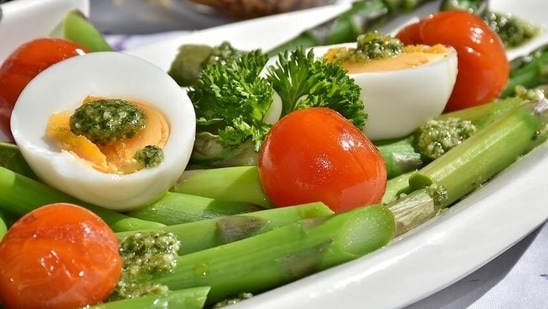- Food that you are eating now can affect your bones later in life. Here’s what to eat and avoid for preventing osteoporosis onset.

ByParmita Uniyal, Delhi
Osteoporosis can weaken your bones and cause mobility issues which would only deteriorate with time. This condition affects your bone density, makes them porous, brittle and put you at a high risk of sustaining fractures. According to WHO, osteoporosis is a systemic skeletal disease characterized by low bone density and microarchitectural deterioration of bone tissue with a consequent increase in bone fragility. The onset of the disease is majorly affected by lifestyle factors. Poor diet and not having enough nutrients can deteriorate your bone health fast. Similarly, being overweight and leading a sedentary lifestyle could put pressure on your joints and increase your risk of osteoporosis. (Also read: 6 important lifestyle changes for women to prevent osteoporosis, bone loss)
In the early stages, you may not even realise the effect of osteoporosis as there are hardly any symptoms. The condition is diagnosed only after a person suffers from a fracture. Poor dietary habits, nutritional deficits and lack of exercise during the growing years limits the bone density even at younger age. Such habits continue into adulthood and can further lead to porous bones. Around menopause, women tend to have lower level of estrogen hormone due to which they are at relatively higher risk of osteoporosis.
“Adequacy of nutrient intake sustains muscle strength and reduces the risk of falls and fractures. Intake of calcium and vitamin D before and during puberty is crucial because maximum growth and development of bones occur by the age of 30 years. Bone mass has also been found to be positively associated with energy and protein intake,” says Dietitian Garima Goyal.
Here are some nutritional dos and don’ts to prevent risk of osteoporosis:
Nutrients to consume
1. Calcium
Calcium is the most important nutrient for bone health. It is advocated that the intake of calcium (500 mg) and vitamin D (700 IU) supplement may reduce the risk of fracture and improve BMD. Milk, cheese, green leafy vegetables, soybean, salmon, figs are all rich in calcium.
2. Vitamin D
Vitamin D plays a pivotal role in calcium uptake and therefore bone homeostasis. An individual’s Vitamin D status depends mostly on sunlight exposure, and secondly on dietary intake of vitamin D. The few foods that naturally contain Vitamin D are egg yolks, fatty fish such as salmon, mackerel, catfish, tuna, and sardines, cod liver oil, and some mushrooms.
3. Phosphorous
Phosphorous is also one element very helpful for the bone growth. Most protein foods are rich in phosphorous. Ratio of calcium to phosphorous is important to be effective. Add meat, poultry, fish, nuts, beans and dairy products to your diet.
4. Vitamin K
Vitamin K doesn’t only help with wound healing, but is also an important vitamin for an optimal bone health. Vitamin K is also found in most foods. Optimal intake helps in maintaining calcium homeostasis, bone health and reduction in risk of fractures. Vitamin K may also contribute to favourable bone health through decreasing bone resorption and increasing collagen content in bone cells.
Foods to avoid
Avoid sodas and caffeine-containing drinks
Intake of colas is associated with lower bone mass. Although the primary issue may be displacement of calcium rich dairy beverages, there is also a potential direct effect. High amounts of caffeine may be a high risk for bone loss.
Sodium-rich foods
A high sodium intake may contribute to osteoporosis because of increased calcium excretion. So make sure you reduce your salt intake, if you want to stay high on your bone mass.
Additionally, physical activity and exercise across the lifespan also help to preserve bone health. Weight bearing exercises increase bone remodelling and strength.